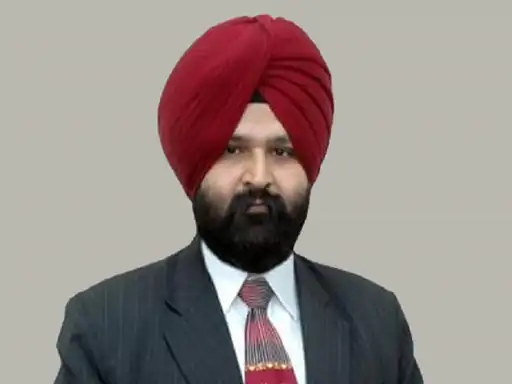Madhya Pradesh Chief Minister Dr. Mohan Yadav is on a crucial industrial outreach mission in Punjab’s industrial hub, Ludhiana. His visit, scheduled for today at Punjab Agricultural University (PAU), aims to convince prominent Ludhiana-based industrialists to shift or expand their businesses to Madhya Pradesh under the state’s ambitious ‘Invest MP’ scheme.
The meeting will be attended by key BJP leaders including district president Rajneesh Dhiman and senior party figure Anil Sareen. This visit marks a strategic push by the Madhya Pradesh government to position the state as a leading destination for manufacturing and industrial investment, especially for sectors in which Ludhiana holds a traditional strength—textiles, bicycle manufacturing, sewing machines, forging, and auto parts.
Background: MPIDC Delegation Had Paved the Way
Prior to this high-level visit, a delegation of senior officials from the Madhya Pradesh Industrial Development Corporation (MPIDC), led by Executive Director Pratul Chandra Sinha, had already visited Ludhiana. They met with members of the Federation of Industrial & Commercial Organization (FICO), laying the groundwork for today’s meeting.
According to FICO President Gurmeet Singh Kular, Sinha highlighted the many strategic advantages that Madhya Pradesh offers—abundant natural resources, low operating costs, and central access to nearly 50% of India’s consumer market. These attributes, paired with business-friendly policies and a growing industrial ecosystem, make MP an increasingly attractive destination for manufacturers.
4 Major Ludhiana Industries Already Shifted to MP
One of the most telling signs of this industrial shift is the fact that four major Ludhiana-based industrial groups have already moved part or all of their operations to Madhya Pradesh. Gurmeet Singh Kular confirmed that prominent names like Hero, Avon, and Oswal have relocated to MP, citing better infrastructure support and cost-effective logistics.
Kular also emphasized that the ongoing industrial migration is a result of diminishing support and unfavorable business conditions in Punjab. He raised concerns that despite promises from the Punjab government, industrial growth has not received the attention it deserves. In contrast, MP’s proactive industrial approach is gaining traction.
Industrial Land at Just ₹800 per Sq. Yard
One of the major attractions Madhya Pradesh is offering is land at highly subsidized rates. Industrial land near major cities like Indore and Bhopal is available at just ₹800 per square yard—a rate virtually unheard of in Punjab or any other industrialized region in India.
This competitive pricing is accompanied by offers of uninterrupted 24×7 power supply, fully developed industrial parks, and streamlined approval mechanisms. The state is especially targeting sectors like textiles, cycle manufacturing, and engineering components—industries that have formed the backbone of Ludhiana’s economy for decades.
Punjab Losing Ground: Once an MSME Hub, Now Ranked 28th
Once known as a national hub for MSMEs (Micro, Small, and Medium Enterprises), Ludhiana now faces serious challenges. Industrialists lament the downfall, citing that after 1996, not a single new focal point has been established for industrial development.
The much-publicized 360-acre Hi-Tech Cycle Valley project was scrapped by the Punjab government, despite its potential to rejuvenate the local manufacturing sector. FICO leaders recalled how in 2014, former Deputy CM Sukhbir Badal had initiated land demarcation at Dhanansu for the same project, but the project was left in limbo after the government changed just six months later.
Power Costs Becoming Unbearable in Punjab
Another significant concern expressed by industry players is the rising cost of electricity in Punjab. While the state government claims to provide electricity to industries at ₹5 per unit, actual bills reveal a much higher cost—ranging from ₹9 to even ₹14 per unit for some industrial units.
Industrialist Gurmeet Singh Kular revealed that his own factory received a power bill recently where the effective rate reached ₹9/unit. Many units are reportedly being billed without the MOA (Maximum Overall Rate) mechanism, making it financially unsustainable.
He also criticized the Punjab government’s populist free electricity schemes for households, arguing that the financial burden of those giveaways is being indirectly transferred to industries, making manufacturing unviable.
Upcoming Meetings with Punjab Ministers
Kular indicated that industry leaders will also be seeking a meeting with Punjab Minister Sanjeev Arora to highlight these issues and the lack of serious focus on industrial development by the current state government. While Punjab CM Bhagwant Mann has spoken about attracting units like BMW, industrialists say these announcements are yet to mature into tangible results.
The contrast between words and actions is pushing many businesses to explore alternatives like Madhya Pradesh, where policies appear more grounded and action-oriented.
Conclusion
Madhya Pradesh CM Mohan Yadav’s visit to Ludhiana is more than symbolic—it reflects a shift in India’s industrial geography. With Punjab’s declining industrial competitiveness and rising operational costs, states like MP are seizing the opportunity to attract top-tier manufacturers and entrepreneurs.
The outcome of today’s meetings may very well accelerate this trend, potentially reshaping the industrial landscape of North India in the years to come. For Madhya Pradesh, this is a chance to emerge as the new manufacturing heartland of India.


